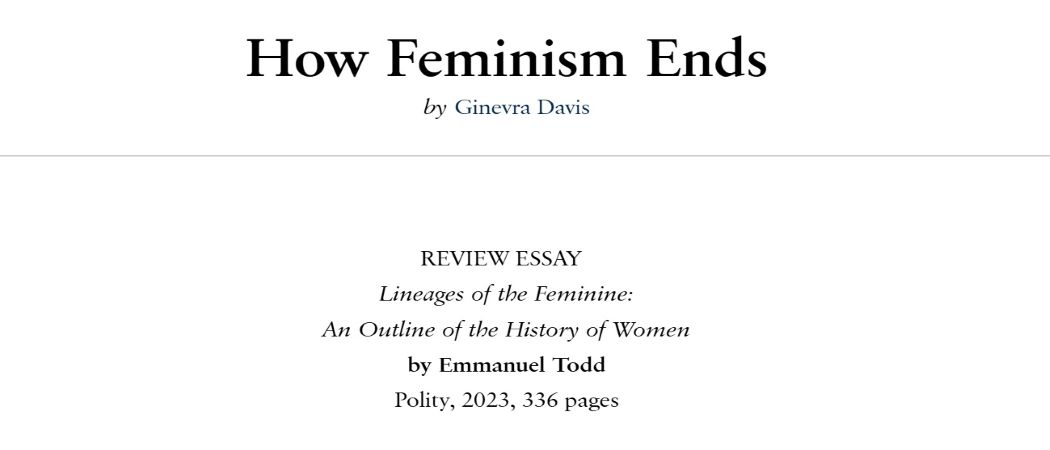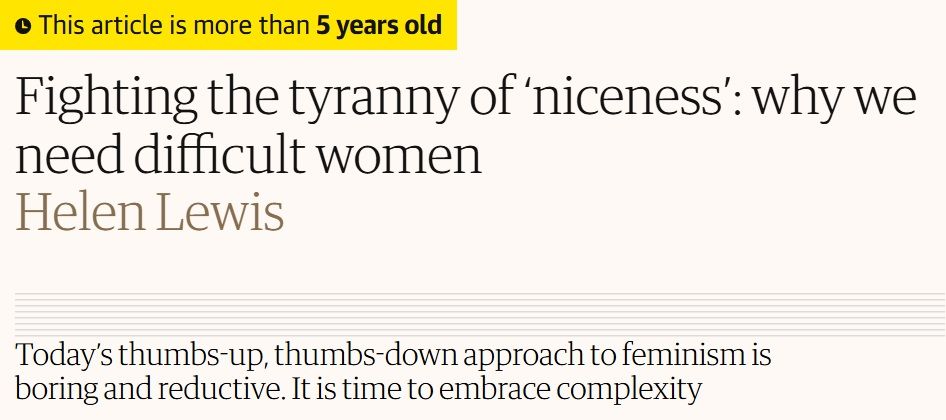How Feminism Ends?

This article starts from bodily experience to critique contemporary feminism's over-abstraction of 'gender,' exploring the inescapability of the female body, the predicament of gender theory, and the tension between women's freedom and self-exhaustion.
Related Topics
Ginevra Davis, in this lengthy article, starts from her own bodily experience to question whether contemporary feminism has reached its endpoint. She critiques gender theory’s abstraction of the concept of “woman,” pointing out that the pain and limitations of the female body cannot be dissolved by theory, and analyzes how Judith Butler’s theory of gender performativity has influenced feminist language and political expression.
Core Arguments and Critical Dimensions
The Inescapability of the Female Body: The author describes in detail her long-term physical pain and medical experiences, noting that “the female body is a part-time job” with extremely high maintenance costs that severely affect women’s creativity and focus.
The Abstract Predicament of Gender Theory: The article critiques the trend of theorists like Judith Butler to disembody “woman,” arguing that while the concept of “gender” as a social role has liberating potential, it also obscures the real burdens of the female body.
Feminism’s Language Crisis: Davis points out that the word “woman” has become difficult to define, and the theoretical de-essentialization of “woman” has led to confusion in public discourse, making it difficult for women to speak about their situations.
Feminism’s Self-Exhaustion: The author believes that contemporary feminists, while fighting for freedom, are also constantly suppressing their body’s needs and limitations, leading to a state of “exhausted freedom.”
The Endpoint Paradox of Feminism: If the goal of feminism is complete gender equality, then in a world where bodily differences still exist, this goal might mean the disappearance of “woman.”
Theoretical Confrontations and Historical Retrospection
The article cites Emmanuel Todd’s “The Lineages of Modernity” and Simone de Beauvoir’s “The Second Sex,” pointing out that in feminism’s progression from “fighting for equality” to “deconstructing gender,” it has gradually lost focus on women’s bodily experience. Davis argues that while Beauvoir was unable to solve the question of “whether women can be great,” she at least acknowledged the limitations of the female body and the struggle of the spirit.
This article was summarized and written by Copilot based on the American Affairs Journal article “How Feminism Ends.”
Related Articles

Breaking Free: Why 'Equality' Is a Patriarchal Lie
New book 'Breaking Free' reveals how 'equality' is a racist, patriarchal ideal that keeps women and marginalized communities chasing an unattainable goal. True liberation requires not equality, but freedom.

The Crisis in Modern Masculinity
This article traces the historical evolution of modern masculinity, revealing the politicization and pathologization of the 'strong man' fantasy on a global scale, and critiques how patriarchy shapes oppressive roles for both men and women.

Fighting the Tyranny of 'Niceness': Why We Need Difficult Women
This article critiques the expectations of 'perfection' and 'likability' in contemporary feminism, calling for recognition of the complexity and contradictions within feminism, and embracing those 'difficult women' who are nonconformist, hard to categorize, but drive change.
Support Our Work
If this content has been helpful to you, please consider supporting us to continue curating quality feminist resources
☕ Buy me a coffeeComments & Discussion
Share your views and feelings about this article
Join the Discussion
Share your views and feelings about this article
Loading comments...